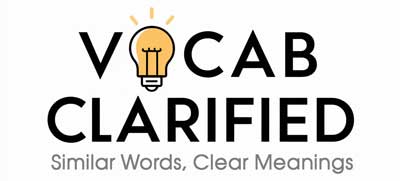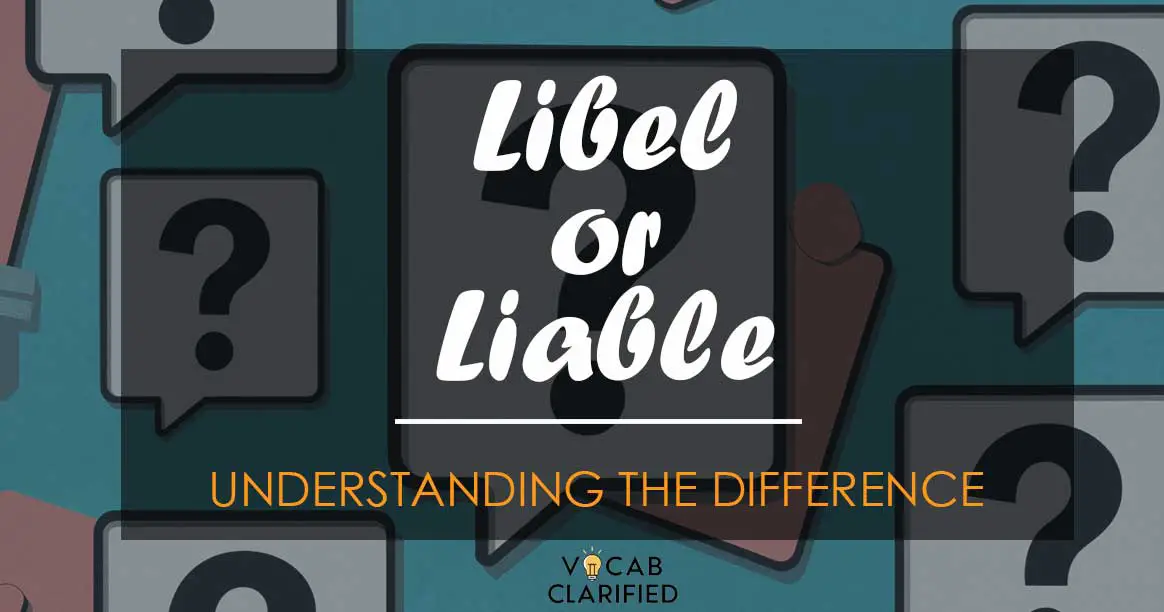Imagine you’re writing a post online and someone accuses you of being “liable” for “libel.” These two words are often mixed up, especially since they sound alike and are both related to the law. However, they have very different meanings and implications.
Knowing the difference between “libel” and “liable” is crucial, especially when dealing with legal matters or responsibilities. In this article, we’ll clarify these terms and provide practical examples to help you use them correctly.
Understanding “Libel” And “Liable”
Libel: Definition and Usage
“Libel” is a noun that refers to a written or published false statement that damages someone’s reputation. It is a serious legal issue often associated with defamation. For example:
- Example 1: A newspaper that publishes false accusations about someone can be sued for libel.
- Example 2: Posting defamatory comments about a person on social media may lead to a libel lawsuit.
In short, “libel” involves harmful, false statements that are written or published.
Liable: Definition and Usage
On the other hand, “liable” is an adjective that means being legally responsible for something, especially in a legal context. It indicates accountability or the obligation to pay damages. For instance:
- Example 1: If you cause an accident, you could be held liable for the damages.
- Example 2: Employers can be liable for the actions of their employees during work hours.
Thus, “liable” relates to being responsible or answerable, particularly in legal situations.
Side-by-Side Comparison
| Aspect | Libel | Liable |
| Definition | A written or published false statement that damages someone’s reputation | Legally responsible or answerable |
| Common Usage | “The celebrity sued the magazine for libel.” | “The driver was liable for the accident.” |
| Key Differences | Related to defamation in written or published form | Related to legal responsibility or accountability |
When deciding between “libel” and “liable,” consider whether you’re talking about defamation (use “libel”) or legal responsibility (use “liable”). For instance, if someone’s reputation is harmed by something written, it’s a case of “libel.” However, if you’re discussing someone’s obligation to compensate for harm or damage, “liable” is the correct term.
Everyday Usage Examples
Here are some examples to illustrate how “libel” and “liable” fit into everyday language:
- Libel: The journalist was accused of libel after publishing unverified claims about the politician.
- Liable: The landlord was found liable for the tenant’s injuries due to unsafe living conditions.
- Libel: A blogger was taken to court for libel after making false statements about a competitor.
- Liable: The company is liable for damages caused by its defective products.
- Libel: Spreading false and damaging rumors online can lead to a libel lawsuit.
- Liable: Homeowners are liable for accidents that occur on their property.
Conclusion
Understanding the difference between “libel” and “liable” is essential, particularly in legal contexts. “Libel” refers to written defamation, while “liable” concerns legal responsibility.
Using these terms accurately ensures that you communicate clearly and avoid misunderstandings, especially when discussing legal issues.

